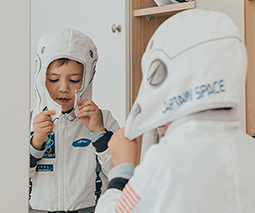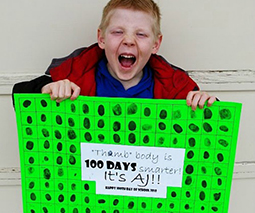Confession time: Helping my child learn to read is doing my head in!
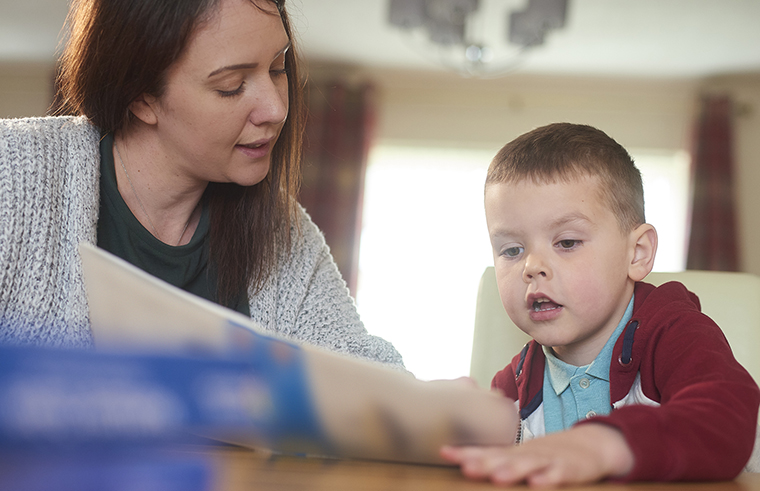
I’m ashamed to admit this, but I’m really struggling to help my little guy learn to read.
Reading feels like the biggest, most insurmountable mountain to him – one he has little interest in trying to climb. To be perfectly honest, I’m also exhausted by the hike.
This is why …
I don’t want to fight anymore
Every time I ask my son – always nicely – to read a home reader, because we didn’t do one yesterday (and Oh my god, what if his teacher notices and I’ve failed him as a mother?) I’m met with the biggest whinge.
“Noooooo, not reading,” he’ll moan.
Then after I lecture him that daily reading is just what all kids his age do (he’s seven) and that reading is fun – he just needs to practice so it becomes easier, we sit down.
I snuggle in beside him and try to position him to be more upright, instead of slumping like a moping teenager who just had his mobile phone confiscated.
Then I put on my best chirpy voice.
Me: “Now let’s read! Can you try reading the title?”
Him: “I can’t …”
Me: “Have a go, just sound it out …”
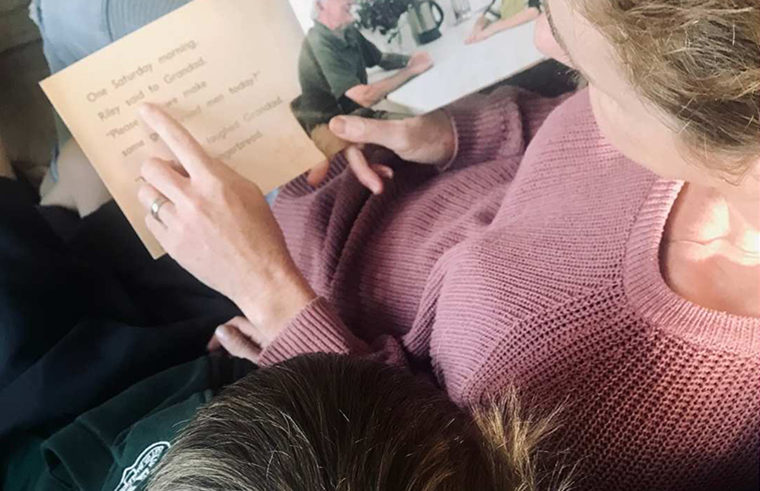
Give me wine
What follows is a bit of reading with lots of encouragement from me and sounding out from him, a few wrong guesses at words, a break for a drink of water and some silliness as I ask him to please read in his good reading voice.
Then the tidal wave of tiredness rolls in …
First there is a yawn, followed by lots of squirming and fidgeting, and right when I snap at him to “JUST SIT UP”, I know it’s about to hit.
“But I’m soooo tired,” he tells me. And he is. His eyes have glazed over and his body has become floppy.
“C’mon mate, you’ve almost finished this one. Just two more pages, you can do it,” I coax.
At this point I know we will get through the book, but it will be like dragging an overtired, hungry toddler up a hill on a hot day. Slow and painful.
Surely I can’t be alone?
Writing this makes me feel like a terrible mum, but am I alone? Do other parents or teachers feel this way when reading with kids who are ‘reluctant readers’ like mine?
Does it feel like a chore for you too?
Now, I love reading and want to raise little bookworms. I’ve always read to my kids, but I feel if we could just get over this ‘home reader’ hurdle then he might be on the path to becoming an independent reader and, fingers crossed, maybe grow to enjoy it?
But I need help! I am so disheartened right now.
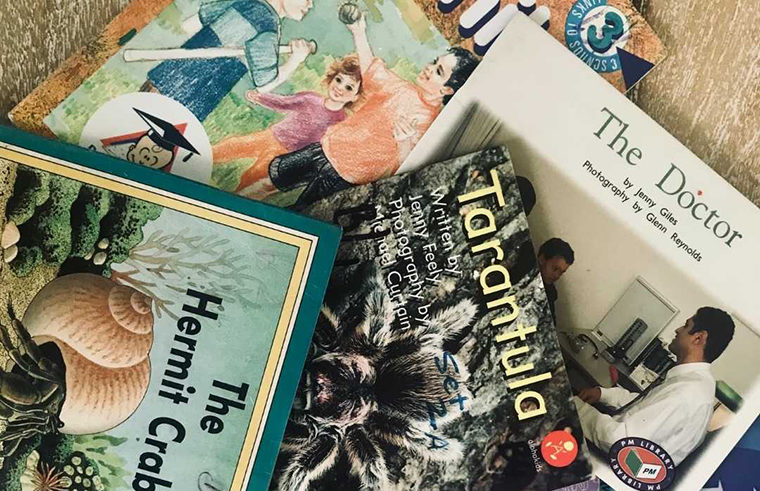
How to stay positive with kids at home reader time
Thankfully I happen to know Megan Daley. Teacher-librarian extraordinaire and possibly the biggest cheerleader there is in helping kids to not only learn to read, but to love it too. Megan also blogs and reviews children’s books at Childrens Books Daily.
These are her top tips for keeping the faith (and our cool) when it comes to climbing that learning-to-read mountain with newbie readers.
Thank you, Megan!
1. Create a short and snappy routine
Read the home readers at a similar time each day, so there is no surprises (and hopefully no arguments) around when and for how long. For us, home readers were always done on the drive home from school. You may prefer to fuel up with afternoon tea then do the home reader, or perhaps mornings work best in your family.
2. Treat it as training
I often compare home readers to the practice or training sessions required for football, netball, piano (or whatever your child does). I compare it to exercise and I believe it’s okay to admit to a child that ‘this is not always what we want to do, but the outcome (reading fluency) is going to be great’ and ‘it’s like learning to ride your bike. Lots of bumps and frustrations but when you can ride, the feeling of freedom is wonderful!’.
3. Follow up with fun!
Always stress to your child that the home reader is for ‘learning to read’ and then follow up with a recreational read (self-selected library book or favourite from your home shelves). We want to lay down strong neural pathways associating reading with enjoyment, delight, freedom in reading choice and time spent with a loved adult.
4. Build confidence
Home readers should be at a level which is achievable for your child – one to two errors on a page maximum. If the home reader is too hard and is becoming a battle, speak to the teacher.
5. Be a good reading buddy
 Need some support to be the best parent you can be? Our Parent School parent coaching experts can help. Click to find out more or book a one-on-one session.
Need some support to be the best parent you can be? Our Parent School parent coaching experts can help. Click to find out more or book a one-on-one session.




